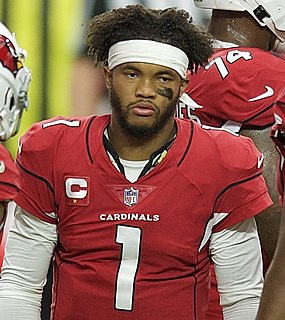A Quote by Jason Silva
I think one of the both liberating and terrifying prospects from synthetic biology for example is that you are going to have all of these do it yourself biosynthetic labs where people are going to be playing with the software of life. We are going to have a new generation of artists that are going to be playing with genomes the way that Blake and Byron used to play with poetry. And when genomes are the new canvas for the artist, we might be able to radically upgrade the human species and the software of the biology of the human species.
Related Quotes
Darwin's theory of evolution is a framework by which we understand the diversity of life on Earth. But there is no equation sitting there in Darwin's 'Origin of Species' that you apply and say, 'What is this species going to look like in 100 years or 1,000 years?' Biology isn't there yet with that kind of predictive precision.
Not going back is fine. Not going back but occasionally visiting might be best. Not going back but remembering so you don’t see the same view twice. Not going back so you can turn a new page, write a new chapter, develop an entire new list. Not going back so you can stretch and grow and see yourself in a light that you never knew existed. Not going back so that you can fly. Fly.
When you develop software, the people who write the software, the developers are the key group but the testers also play an absolutely critical role. They're the ones who ah, write thousands and thousands of examples and make sure that it's going to work on all the different computers and printers and the different amounts of memory or networks that the software'11 be used in. That's a very hard job.
Biology is a science of three dimensions. The first is the study of each species across all levels of biological organization, molecule to cell to organism to population to ecosystem. The second dimension is the diversity of all species in the biosphere. The third dimension is the history of each species in turn, comprising both its genetic evolution and the environmental change that drove the evolution. Biology, by growing in all three dimensions, is progressing toward unification and will continue to do so.
We are an intelligent species caught in an historical process. No generation which proceeded us knew what was going on, and there is no reason to assume that we know what's going on or that the generation which follows us will know what's going on. And what kind of trip is it anyway to insist on knowing what's going on?
It is an odd fact of evolution that we are the only species on Earth capable of creating science and philosophy. There easily could have been another species with some scientific talent, say that of the average human ten-year-old, but not as much as adult humans have; or one that is better than us at physics but worse at biology; or one that is better than us at everything. If there were such creatures all around us, I think we would be more willing to concede that human scientific intelligence might be limited in certain respects.
Quarterback and cornerback are two of the hardest positions to play on the field, so yeah, you're going to get beat, you're going to throw interceptions, you're going to get sacked, you're going to miss throws. Stuff like that is going to happen. That's something you've been prepping for your whole life playing the position.
In the next century, we will be inventing radical new technologies - machine intelligence, perhaps nanotech, great advances in synthetic biology and other things we haven't even thought of yet. And those new powers will unlock wonderful opportunities, but they might also bring with them certain risks. And we have no track record of surviving those risks. So if there are big existential risks, I think they are going to come from our own activities and mostly from our own inventiveness and creativity.




































